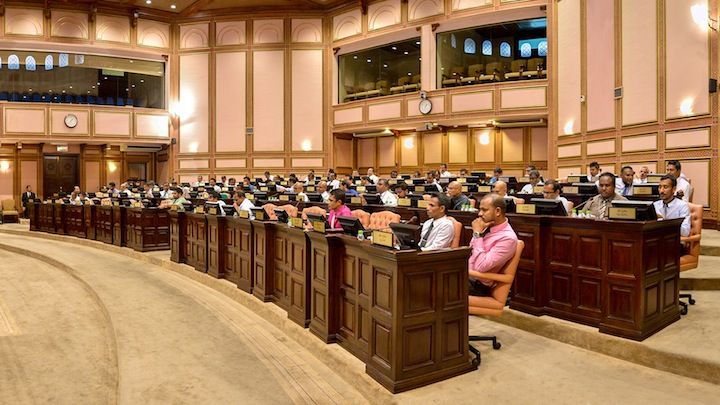New bill on land sales to close tax loophole
The president’s office explained that under the existing land law, buyers and sellers could agree upon prices without any regulatory controls and evade the 15 percent tax on land sales. The government has submitted amendments to the 2002 Land Act to close the loophole. The changes were proposed after a 1,102 square foot plot of land in Malé was sold last month for MVR1.

14 Oct 2015, 09:00
The government has proposed legal changes for privatising rehabilitation centres and controlling the price of land sales to prevent tax evasion.
According to the president’s office, the government submitted bills to the parliament yesterday to amend the 2011 Drug Act and the 2002 Land Act. The bills have not been made public yet.
The president’s office explained that under the existing land law, buyers and sellers could agree upon prices without any regulatory controls and evade the 15 percent tax on land sales.
The amendment is intended to close the loophole, the president’s office said, which was created after the High Court struck down a provision in regulations governing sale and ownership of land.
Become a member
Get full access to our archive and personalise your experience.
Already a member?
Discussion
No comments yet. Be the first to share your thoughts!
No comments yet. Be the first to join the conversation!
Join the Conversation
Sign in to share your thoughts under an alias and take part in the discussion. Independent journalism thrives on open, respectful debate — your voice matters.




